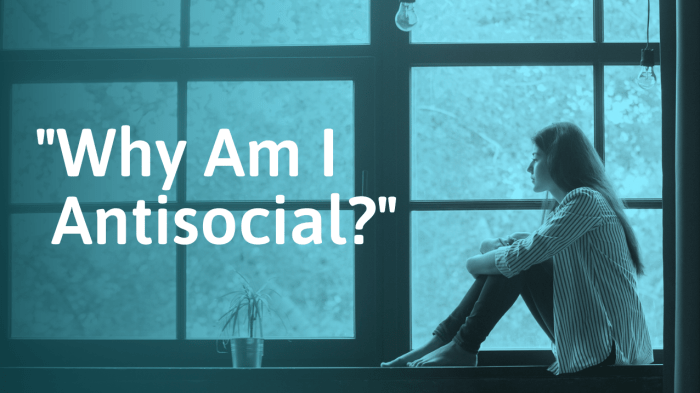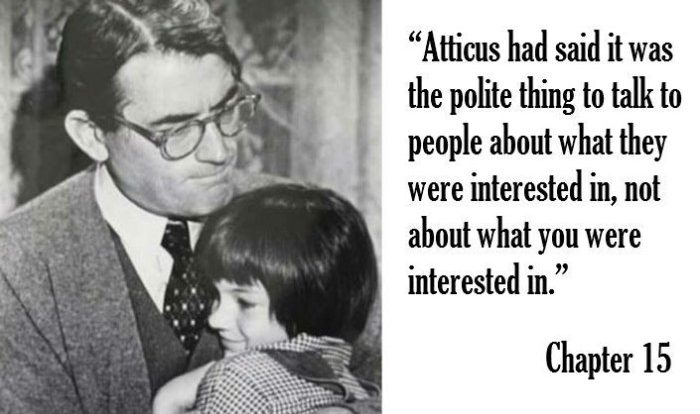Why was clarisse considered anti-social – Clarisse McClellan, a pivotal character in Ray Bradbury’s dystopian masterpiece Fahrenheit 451, has intrigued readers for decades with her enigmatic and seemingly anti-social nature. This essay delves into the multifaceted reasons behind Clarisse’s perceived social isolation, exploring her unique perspective, emotional state, and the complex interplay between her values and her environment.
From her unconventional interactions to her profound insights, Clarisse’s behavior often clashed with the norms of her society. This essay will meticulously examine the factors that contributed to her social isolation, shedding light on the complexities of human behavior and the challenges of navigating a society that values conformity over individuality.
Clarisse McClellan: An Analysis of Anti-Social Behavior

Clarisse McClellan, a character in Ray Bradbury’s novel Fahrenheit 451, is often considered anti-social due to her unconventional behavior and beliefs. This analysis explores the various factors that contribute to Clarisse’s social isolation, including her social interactions, values and beliefs, emotional intelligence, perception and interpretation, family and social environment, and potential mental health considerations.
Social Interactions
Clarisse’s interactions with others deviate from societal norms. She prefers solitude, observing the world and nature, rather than engaging in superficial conversations. Her candid questions and unconventional perspectives often make others uncomfortable. For example, she asks Montag about the purpose of reading books and expresses concern about the lack of empathy in society, which challenges the status quo and the conformity prevalent in her community.
Values and Beliefs
Clarisse possesses a unique set of values and beliefs that set her apart from her peers. She values individuality, authenticity, and experiences over material possessions. Her appreciation for the beauty of nature and her desire for meaningful connections contrast with the consumerism and apathy that characterize her society.
These differences in values create a barrier between Clarisse and those who prioritize social acceptance and conformity.
Emotional Intelligence, Why was clarisse considered anti-social
Clarisse’s emotional intelligence is limited. She struggles to understand and express her emotions, and often comes across as detached and indifferent. Her lack of emotional awareness affects her social interactions, as she may unintentionally hurt others with her bluntness or fail to reciprocate their emotions appropriately.
For instance, when Montag expresses his admiration for her, she responds with a noncommittal “thanks,” indicating a lack of emotional connection.
Perception and Interpretation
Clarisse’s perceptions of others and the world around her contribute to her anti-social behavior. She interprets social cues differently, often missing the subtle nuances of communication. Her tendency to overthink and analyze situations leads to misunderstandings and conflicts. For example, she interprets Montag’s curiosity as an attempt to control her, which leads her to distance herself from him.
Family and Social Environment
Clarisse’s family and social environment have a significant impact on her development. Her family is described as “detached” and “unhappy,” which may have contributed to her introversion and emotional isolation. The lack of a supportive and nurturing environment hindered her social skills and made it difficult for her to form meaningful connections.
Mental Health Considerations
Some critics suggest that Clarisse’s anti-social behavior may be a symptom of an underlying mental health condition. Her detachment, emotional instability, and difficulty forming relationships could indicate depression or anxiety. However, there is limited evidence in the text to support a specific diagnosis, and it is important to avoid making assumptions about her mental health without professional evaluation.
Top FAQs: Why Was Clarisse Considered Anti-social
Why was Clarisse perceived as anti-social?
Clarisse’s behavior deviated from societal norms, such as her preference for solitude, her unconventional conversations, and her critical views of society.
How did Clarisse’s values contribute to her social isolation?
Clarisse’s emphasis on individuality, curiosity, and genuine connections clashed with the superficiality and conformity prevalent in her society.
What role did Clarisse’s emotional state play in her social interactions?
Clarisse’s emotional detachment and lack of emotional awareness hindered her ability to form meaningful connections with others.



